Max Payne 3 multiplayer details a chat with the lead designer
Rockstar's Charlie Bewsher talks story-based progression, level-up rewards and how Bullet Time will work with 16 players
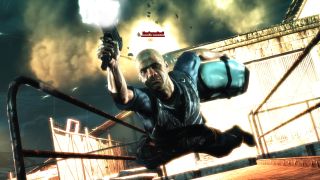
When we had our first hands-on experience with Max Payne 3, we were surprised to find out just how well it preserved the feel of the first two games. At the same time, its bringing a lot of new stuff to the table, not the least of which are two unique multiplayer modes, Gang Wars and Payne Killer. In the first, up to 16 players wage war as gang members in matches that follow a story, with each rounds objective dictated by what happened the last one. In the second, two players take on the roles of Max and his sidekick, Raul Passos, and have to work together to survive against six other players.
Obviously, learning all this filled us with questions. How will Bullet Time work in multiplayer? What will the modes offer, aside from an opportunity to blaze away at other players like weve already done a million times before? And why add multiplayer to Max Payne at all? Luckily, the games lead multiplayer designer, Charlie Bewsher, was willing to enlighten us with detailed answers.
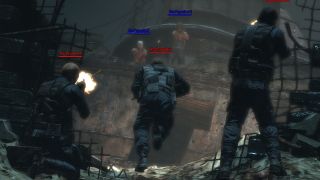
GamesRadar: Max Payne as a series has never really been about multiplayer, although its something thats been talked about in the past. What was the impetus for including it in Max Payne 3?
Charlie Bewsher: Ideas to incorporate competitive and cooperative multiplayer into the Max Payne series have been around since the first game you can actually see some of those roots taking shape in the form of Max Payne 2s Dead Man Walking mode so it was never a question of if we would do multiplayer for Max Payne 3, but what we could to do make it something really special. We wanted to create something that would fit seamlessly alongside the single player campaign, and that maintained all the key elements that make Max so distinctive to play, from the combination of finely tuned shooting mechanics to the emphasis on movement, to the highly cinematic presentation and of course, Bullet Time. In addition, we want to build relationships between players and break away from the sense of anonymity thats so prevalent in todays online shooters.
Our flagship mode, Gang Wars, is where youll immediately notice this work. Gang Wars essentially takes events from the single-player campaign and uses them as a springboard to dive deeper into some of the events surrounding what you experience in the single player game. Players take on the roles of the various factions at war with Max and each other during the course of the game, such as the New York crime families, the gangs of the favelas, paramilitaries like the Cracha Preto or the elite police known as the U.F. E, and creates a branching story thats unique to each match.

Each match of Gang Wars pits two factions against each other and consists of five rounds, with each round shifting dynamically based on the events of the previous round. For instance, if the first round is Team Deathmatch and one player really dominated the match, the next round might be a VIP-type mode where the rival team must hunt down and kill that player. The rounds are all tied together with customized motion-comic cutscenes, narrated by Max, in which individual players are called out for their accomplishments.
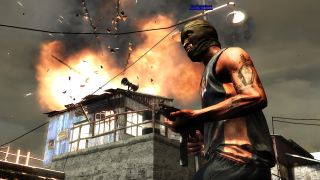
GR: Weve already heard a little about bursts, the abilities that players can unlock as they level up. Can you give us a few examples and tell us how theyll affect gameplay?
CB: Bursts are special abilities acquired through leveling up that play on the same themes and fiction from the single-player experience paranoia, conspiracy, treachery, betrayal, and other themes that exist in the Max Payne universe. Bullet Time is a burst that everyone will immediately recognize and understand. Bullet Time is Maxs special ability that allows him to slow down time to gain an advantage over his enemies. Another example is a burst called Sneaky that changes the color of your nameplate to appear friendly to the opposing team. Its very handy against players who may not be so observant of their surroundings, or for sneaking into enemy capture points. Paranoia is a burst that turns the opposing teams nameplates to appear hostile to one another. In addition, each burst has three levels to unlock, so at higher levels Paranoia will actually turn on friendly fire for the opposing team!
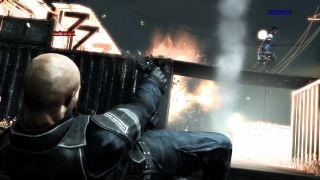
GR: How will Bursts work from a resource perspective? Will they be like perks or persistent abilities with cooldown periods, which players can add to their loadouts between matches? Or will they be one-time-use rewards?
CB: All the bursts consume a resource we call adrenaline. An adrenaline meter is located next to the character health outline and replaces the Bullet Time meter from single player. The meter is broken into three tiers one for each burst level and is filled by shooting and killing enemy players and looting their corpses. Once the first tier is filled, you can activate level one of whichever burst youve equipped. When a particular tier of adrenaline is filled, it will persist until the player decides to activate it, even through death. Any partially filled tiers will be lost when you die.
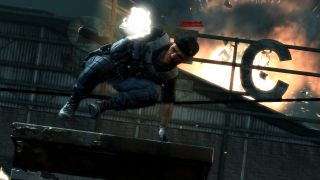
GR: In addition to Bursts, are there any other rewards players can unlock through leveling up? Are there passive abilities, killstreaks, and so on?
CB: We always want to reward and encourage players for playing multiplayer. Progressing through the ranks will consistently unlock new weapons, gear, bursts and projectiles. Excluding weapons and projectiles, players can equip a total of five items three unique pieces of gear, along with varying degrees of body armor and tactical helmets. We have several dozen pieces of gear in the game, all of which bestow passive advantages to give players a boost in the heat of battle. They can range from things like sutures to decrease the time it takes to replenish health, to ammo pouches that increase maximum ammo. Rest assured that well have a ton of unlocks.
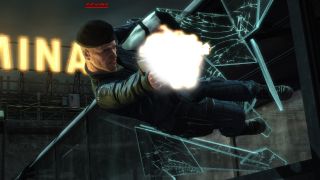
GR: What are some of the challenges youve encountered in bringing a feature like Bullet Time to a multiplayer setting?
CB: Bringing an ability like Bullet Time into multiplayer was incredibly challenging, but were really proud of how its turned out. When a player activates Bullet Time, it doesnt produce a slow-motion bubble around the player, nor does it affect the entire map. Youre correct in that its based on line of sight. Basically, if I activate Bullet Time and youre caught in my line of sight, you will also be in Bullet Time. Both of our avatars are equally slowed down. The advantage to me is that my rate of fire and reload speed are normalized, whereas yours are dramatically slowed down. If you manage to run, roll, or shoot dodge away to break line of sight, you will be free of the Bullet Time effect.
Bullet Time also chains from player to player through line of sight. If youre caught in my Bullet Time and your teammate spots you from 50 yards away, they will also be caught in the effect along with anyone else who can see them. So if an enemy spots me from behind, he will be caught in Bullet Time with a slower rate of fire, giving me time to turn around and deal with him.
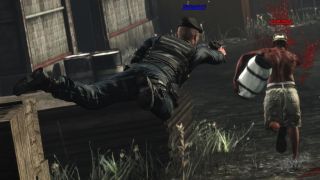
GR: In Payne Killer mode, do Max and Raul have different sets of abilities? Are level progress and rewards earned in Gang Wars consistent with Payne Killer?
CB:Weve given Max and Passos the same abilities, but with a few slight variations to suit their personality. Max starts with his iconic dual-wield uzis, and Passos starts with a high-powered RPD assault rifle. Both characters are given two painkillers, and while their health does not regenerate in this mode, they have significantly more health than enemy players. Working together is crucial to surviving against an outnumbered onslaught, and teamwork has to be established on the fly, as two random players can become Max and Passos at any time.
Level progression is consistent across all our multiplayer modes, so experience and cash for gear/weapons is utilized across the entire experience.
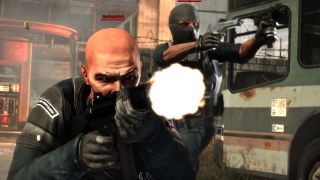
GR: Will Payne Killer follow a plotline, like Gang Wars does, or is it a two-against-the-world deathmatch?
CB: Its more complex than deathmatch, but its not story-based like Gang Wars. With Payne Killer, we want to give players the chance to play as Max Payne in online matches, and take advantage of his special abilities and personality. And while it doesnt have the same direct plot tie-ins that Gang Wars has, it still maintains the same detail and presentation, with narration delivered by Max. Because it combines cooperative and competitive elements, Payne Killer creates unique partnerships and rivalries that are constantly changing from moment to moment. We hope that Payne Killer helps build unique relationships with players, and delivers unique incentives to work together in a decidedly non-traditional way.
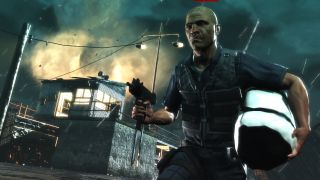
GR: While were aware that Gang Wars follows the events of the single-player storyline, can you tell us a bit about how the two stories will tie in with each other?
CB: Each Gang Wars scenario is placed within the timeline of Maxs story in the single-player game, and involves the factions he meets as the story progresses. Some Gang Wars storylines fill in the events before the single-player story happens, and some flesh out what happens after the events of the game. Once the stage is set, the match plays out dynamically from there, with new modes and gameplay types. Maxs narration also provides context, with the story changing as one side wins or loses a specific round in the match.
There are several gang factions at play in Max Payne 3, and theyll each have their own place in multiplayer. Players can create their own customized gang member so they have their own look. Gang wars helps explain their involvement and motivations in Max Payne 3, and gives players an even deeper look at the themes surrounding Max in the single player story.
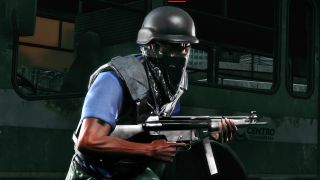
GR: How many narrative/contextual twists can we expect to see within Gang Wars, and how many moving parts can influence how the story develops from round to round?
CB:Were still tweaking all the final branches, but theres plenty of potential for many varying storylines within each Gang Wars match, and the changes from round to round are based on a variety of statistics happening behind the scenes. If one of the rounds is a turf war, for example, and one team really dominates, the next round may lead to a search and destroy type mode, where the losing team must plant bombs in the opposing teams territory. The possibilities are dependent on the outcomes of each round, and the narrative process in Gang Wars is built to bring an extra layer of tension, drama and variety into multiplayer.

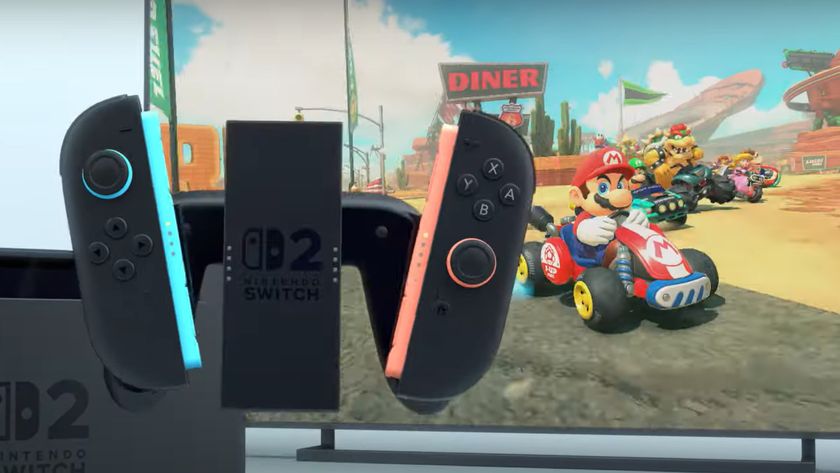
Ex Nintendo PR managers say the Switch 2 generation is likely to see the retirement of "several of the major developers at Nintendo who we have known for 40 something years"
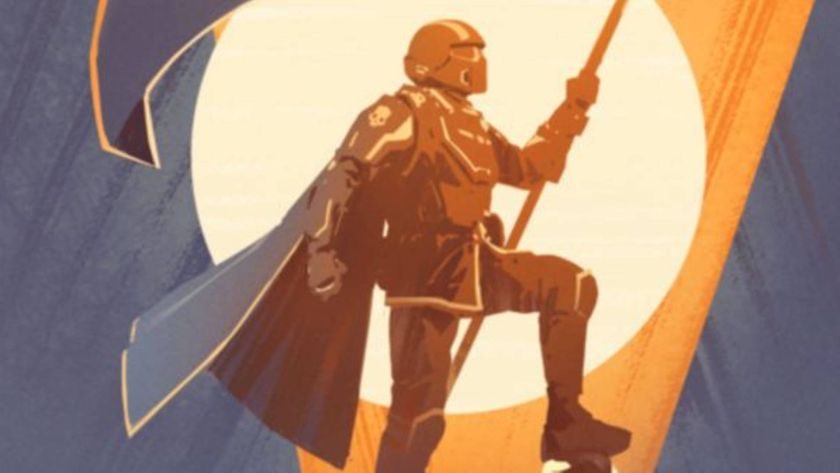
Helldivers 2 CEO says industry layoffs have seen "very little accountability" from executives who "let go of one third of the company because you made stupid decisions"

Spider-Man: Brand New Day - How Peter Parker and Mary Jane's break up led to one of the wall-crawler's most transformative comic eras

Ex Nintendo PR managers say the Switch 2 generation is likely to see the retirement of "several of the major developers at Nintendo who we have known for 40 something years"

Helldivers 2 CEO says industry layoffs have seen "very little accountability" from executives who "let go of one third of the company because you made stupid decisions"

Spider-Man: Brand New Day - How Peter Parker and Mary Jane's break up led to one of the wall-crawler's most transformative comic eras








